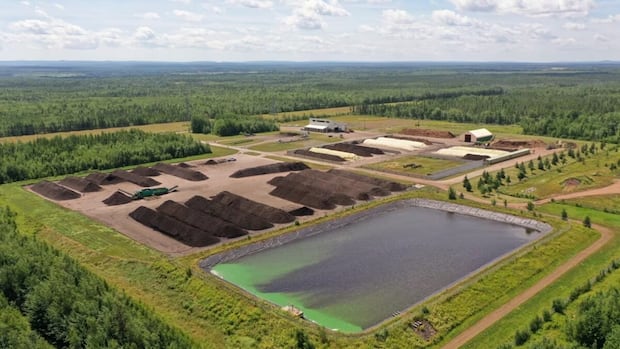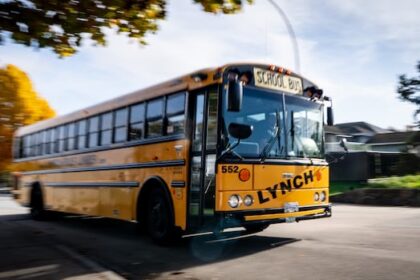New BrunswickThe Moncton region’s wastewater utility is looking at the costs ratepayers could face if it moves away from composting sewage biosolids, a process that’s led to complaints about a foul smell in the New Brunswick city’s north end near its composting facility.Utility’s biosolids composting site in Moncton is subject of smell complaintsShane Magee · CBC News · Posted: Oct 21, 2025 5:00 AM EDT | Last Updated: 7 minutes agoTransAqua’s sewage composting facility covers a sprawling site in Moncton’s north end shown in 2022. (Shane Fowler/CBC)The Moncton region’s wastewater utility is looking at alternatives to composting a sewage byproduct.TransAqua has turned biosolids removed from Moncton, Dieppe and Riverview wastewater into compost at a facility near Moncton’s north end. The site has been blamed for an occasional pungent smell in the New Brunswick city’s north end.Years of complaints led to Moncton council passing a motion in February 2024 insisting TransAqua either enclose the site in a building, or move it outside the city. Neither has happened. Utility officials told council during a presentation Monday that options — some estimated to cost around $40 million — are still being analyzed.Utility hopes to avoid ‘rate shock'”The priority for us with those costly options is to make sure that we understand the rate impacts because we don’t want to fully engage in a $40-million project if the residents get rate shock,” Kevin Rice, TransAqua’s general manager, told reporters.”We want to make sure that we can plan appropriately, make sure we can get the funding and have it in place to mitigate rate shock.”The rate has remained at $210 per year since 2016.He said the utility’s board will get details next month about the potential impact on wastewater rates paid by homes and businesses.Rice said next year the utility will examine the feasibility and preliminary design of two options that would require millions in spending. One method involves mixing lime with the biosolids. It could then be used for agriculture. Rice said that option has a preliminary estimate of $34 million. Another option is called anaerobic digestion, a process where microorganisms break down the material and produce gas that can be burned.”You could recover costs by either generating electricity or generating renewable natural gas,” Rice said.The decision could affect more than just the Moncton area. In 2022, TransAqua purchased a second composting site north of the city in the municipality of Five Rivers. The utility has been trucking biosolids from Moncton to the Five Rivers site between May and November.That’s led to reduced complaints about the smell in Moncton, but upset in Five Rivers. Rice said 80 to 100 residents attended a public meeting last month about TransAqua’s biosolids strategy.”Their sentiment is, ‘We don’t want it, we don’t want the greater Moncton area’s waste and we want you to leave,'” Rice said, adding it’s a sentiment they can’t ignore. “We have to put together a risk mitigation plan because that facility in Five Rivers is currently saving our bacon. Because if we don’t have anywhere else to go, what do we do with the waste that we’re generating, the biosolids that we’re generating?”Rice said both locations are expected to be at capacity by 2037 based on projected population growth.Moncton Coun. Bryan Butler speaks to reporters after the TransAqua presentation Monday. (Shane Magee/CBC)Moncton Coun. Bryan Butler, who represents the city’s north end and has been vocal about addressing the smell issue, said little has changed since council passed the 2024 motion. However, he said it was good to hear TransAqua is still looking at options. “At least they’re moving forward with some types of ideas. I’m not sure it’s the idea that’s going to help everybody,” Butler said.He said he wants to discuss the issue with the federal government to see what funding may be available as changes to federal water quality regulations led to TransAqua changing its wastewater treatment plant, which led to a significant increase in biosolids. Rice has previously said the upgraded water treatment plant in Riverview meant a surge in biosolids being sent for composting instead of being discharged into the Petitcodiac River.ABOUT THE AUTHORShane Magee is a Moncton-based reporter for CBC News.
TransAqua looks at costs of new ways of disposing of sewage byproduct










